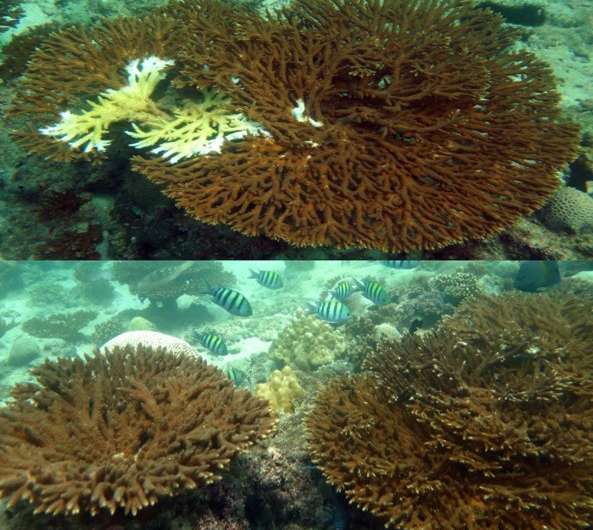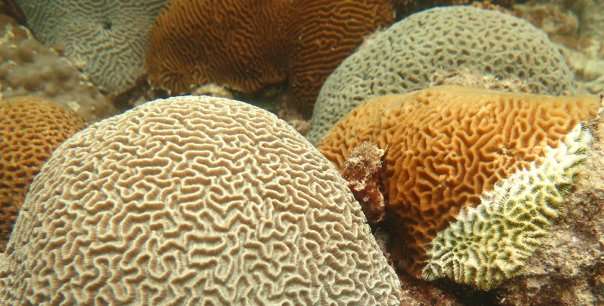New research suggests corals produce molecules that can help resist disease

Corals' resistance to disease is highly dependent on their ability to maintain healthy surface microbiomes, a community of microorganisms, such as bacteria and fungi. For several years, it has been shown that corals harbor unique microbes at their surfaces, but the mechanisms of how this community is recruited and maintained were not known. In a new study published in Communications Biology, NYU Abu Dhabi Assistant Professor of Biology Shady Amin, along with Philippe Schmitt-Kopplin from the Helmholtz Center Munich, report that corals, though they are stationary organisms, can alter their surroundings by producing unique molecules that can help recruit healthy microbiomes and fight parasitic microbes.
Much like how our health is linked to maintaining a healthy gut microbiome, corals also resist disease by maintaining a healthy surface microbiome. The paper reports for the first time that corals are surrounded by a cloud of molecules that form concentration gradients around coral colonies and help structure microbial communities, also known as surface microbiomes, residing on coral surfaces. The implications of these findings are far reaching as these microbial communities are strongly linked to whether corals around the world are healthy or are infected by disease.
Using water samples from 18 coral colonies along the Abu Dhabi coast, each of which was sampled at different distances from the coral surface, the study's researchers have discovered that Acropora and Platygyra corals harbor unique bacteria and molecules at their surface, distinctly different from surrounding seawater. These molecules were identified as chemo-attractants, antibacterials, or signaling molecules, suggesting they may structure coral surface-associated microbes. Their findings show that there is a distinct gradient of molecules surrounding corals, and that these molecules may help recruit beneficial bacteria and/or defend against parasitic bacteria.
Furthermore, the researchers have detected surface associated molecules characteristic of healthy or white-syndrome disease infected corals, a finding which may aid in predicting the onset of disease.
"This is the first glimpse we have of what corals do in their immediate surroundings to adapt to their environment. If we understand the types of molecules corals need to maintain a healthy surface microbiome, we may be able to predict when diseases and bleaching occur and perhaps even prevent them," said Amin.

Provided by New York University




















